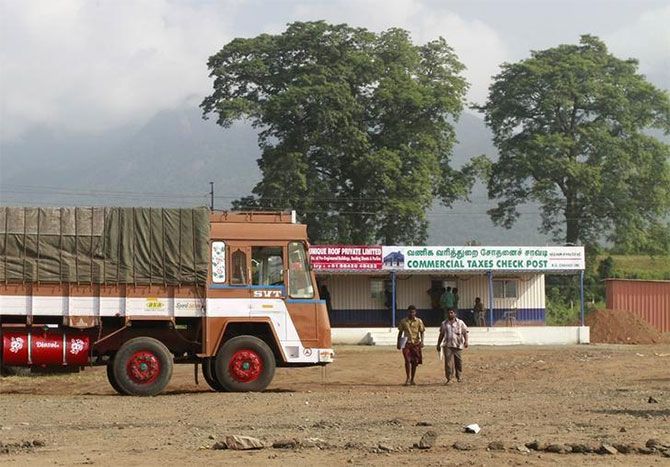 | « Back to article | Print this article |
Any residual amount left in the Compensation Fund after five year compensation period shall be shared equally between the Centre and the states.

The Centre will have a greater share of the residual amount in the compensation fund at the end of the 5-year period as the GST Bill now provides for equal sharing of the amount as against the earlier formula, which favoured states.
According to the Goods and Services Tax (Compensation to States) Bill, as introduced in the Lok Sabha on Monday, they will receive provisional compensation bi-monthly from the Centre for loss of revenue from implementation of GST.
The draft law had provided for payment of compensation every quarter.
Tweaking the provision of the draft, which was made public in November 2016, the GST Compensation Bill said that "any residual amount left in the Compensation Fund after five year compensation period shall be shared equally between the centre and the states".
As per the earlier draft, any excess amount after the end of five year tenure in the 'GST Compensation Fund' were to be divided between Centre and states as per the specified formula under which 50 per cent of the excess amount was to be devolved between Centre and States as per statute.
The remaining 50 per cent would have to be given to the states in the ratio of their total revenues from SGST in the last year of the transition period.
The bill, as cleared by the GST Council, has simplified the structure for sharing of the residual amount in the Compensation Fund.
The GST Council, comprising Union finance minister and state representatives, had decided to set up a compensation fund by levying cess on demerit and luxury goods.
The proceeds from the fund would be utilised to compensate the states for revenue loss in the initial five years of GST roll out, which is likely from July 1.
The bill also provides for audit of accounts relating to Compensation Fund by the Comptroller and Auditor General.
Also the final adjustment of compensation to be paid to the states would be done after audit of accounts of the year by the CAG.
The Bill also stipulates that the base year for calculating the revenue of a state would be 2015-16 and a secular growth rate of 14 per cent would be used for calculating the revenue of each state in the first five years of implementation of GST.
The loss of revenue to a state will be the difference between the actual realisation to a state under Goods and Services Tax (GST) regime and the tax revenue it would have got under the old indirect tax regime after considering a 14 per cent increase over the base year of 2015-16.
It also provides that in case of the 11 special category states, the revenue foregone on account of exemption of taxes granted by states shall be counted towards the definition of revenue for the base year 2015-16.
The revenues of states that were not credited to the Consolidated Fund of the states but were directly devolved to "mandi" or "municipalities" would also be included in the definition of 'revenue subsumed', the bill said.
Photograph: Sivaram V/Reuters